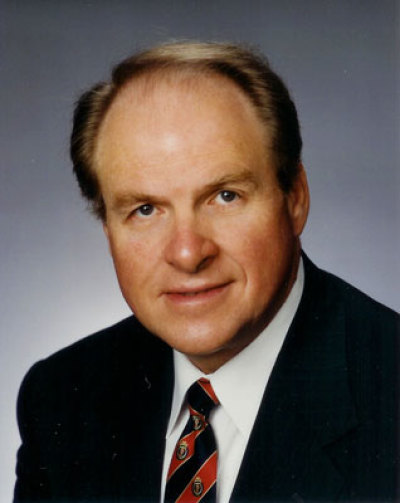The tipping point of nations and churches: Beware of over institutionalization (pt. 3)

In times like these when whole societies seem to be at the “tipping point” of judgment, church leaders must think organically more than institutionally.
This is vital because the authentic New Testament church is the “strategic remnant” with an important role when a nation reaches a critical point in its plummet into judgment.
I prefer calling the genuine church an organism rather than an institution. The organism-church is made up of “living stones.” (1 Peter 2:5) The New Testament translates two Greek words as “life.” Bios is the life of the flesh that enables our existence in the finite world. Zoe, the term used in 1 Peter 2:5, most often refers to the God-quality of life. It is infused with the “breath” of God — the Holy Spirit.
Therefore, the organism-church is one that prioritizes the development of Spirit-filled disciples of the Lord Jesus Christ, impacting the world with the life-quality God has placed in them through Christ, and the spiritual gifts God entrusted to them and energized by the Spirit.
The organism-church takes itself seriously as the body of Christ, seeks the empowerment of the Holy Spirit, anchors itself to the Word, and sees the Kingdom of God rather than merely its tight little corner.
Decades ago, Professor Findley Edge traced how dynamic movements are squelched by institutionalization.
A movement springs out of a stifling status quo. The hefty powers of the status quo resist the movement. That very opposition produces rapid growth in the movement. The status quo brings persecution against the movement, ranging from social and cultural ostracism to literal execution, yet growth continues. Finally, the status quo must come to terms with the movement’s popularity and begins to tolerate it. The movement undergoes rapid change, and gains acceptance from its former opponents. Institutionalization sets in.
In my book, Call Down Lightning (Thomas Nelson/Emanate Books, 2019), I studied the Welsh Revival of 1904-05 that brought radical transformation to that society in mere months. Ultimately, I had to spend an entire chapter on “Why Revival Tapers.” I found that spiritual awakening fades when there is an attempt “to trap the fiery movement into the cold glacier of institutionalization.” (page 185)
Findley Edge wrote that “when the church turns its concern inward upon itself, when it is more concerned with its own existence and progress than it is with the mission for which it was founded” institutionalization has taken over.
Edge quotes missiologist Hendrick Kraemer, who believed the Western church in the twentieth century was going through this hardening process. It becomes “introvert” as “the mind of the Churches is bent, above all, on its own increase and well-being… It is Church (institution)-centered… self-centered.”
Transformational movements are born in crisis. The corona-virus pandemic has thrust us into new ways of doing church. Perhaps God has given the church an opportunity through this crisis to shed its stifling garments and once again become a dynamic movement. Evidence of that abounds as praise and worship, along with prayer, spring spontaneously from people hungry to gather and take the joy of the Lord and His Word into the streets.
Psalm 22:3 reveals that the Lord is “enthroned,” made manifest in the world through the praises of His people. Ezekiel 22:30 tells of God’s concern to find those who will stand in the gap to intercede for the nations. Habakkuk 2:14 emphasizes the blessing that comes when the “knowledge” of God’s glory fills the earth through the proclamation of His Word.
All these are organic actions. They spring from an organism-church, as seen in Ezekiel’s vision of life-giving floods flowing from the restored-renewed Temple (Ezekiel 47). Praise, prayer, and proclamation don’t dribble out from imposing buildings, but, in crisis, surge in the living waters, bathing and refreshing the weary, arid land.
The first and second century church in Rome gathered in the catacombs, but nurtured rich life there. When Constantine imposed institutional Christianity on the Roman Empire, the church began to enjoy the relief of not having to die in the arenas. Finally, its own institutional survival became more important than the purpose for which it was in the world, and its effectiveness was lost.
In the Renaissance and Middle Ages, the church became just like all the other institutions, with its armies, powerful rulers, scheming nobles, and vast treasuries. It was in that ethos that Thomas Aquinas, the great Catholic apologist, had a historic conversation with Pope Innocent IV. It occurred in a chamber where aides were counting treasures and money.
“The church is no longer in an age when she can say, ‘silver and gold have we none,’” said Pope Innocent.
“It is true, holy father,” Thomas replied, “nor can she now say to the lame man, ‘Rise up and walk!’”
The institutional issues now are huge. Budgets, staffs, programs, equipment — including the costly tech contraptions that keep churches live-streaming — all demand urgent and constant attention, yet they must not become the overwhelming focus.
When the virus-crisis is gone, let us not forget what the church did when the troubles were upon us: praise erupted in city squares, prayers intensified everywhere, and the proclamation of the good news of Christ’s Kingdom zapped the globe through livestreaming.
Yes, all of these require institutional elements. There must be order in the house of God and human society. However, let’s learn the lesson: Don’t try to institutionalize this river, lest it become ice.
Let the breath of God blow through the organism-church igniting praise, prayer, and proclamation. Equip the saints for the work of organic ministry and let them go to it.
Wallace Henley is a former pastor, White House, and congressional aide. He served eighteen years as a teaching pastor at Houston's Second Baptist Church. Wallace, the author of more than twenty books, now does conferences on the church and culture, church growth and leadership. He is the founder of Belhaven University's Master of Ministry Leadership Degree.




















